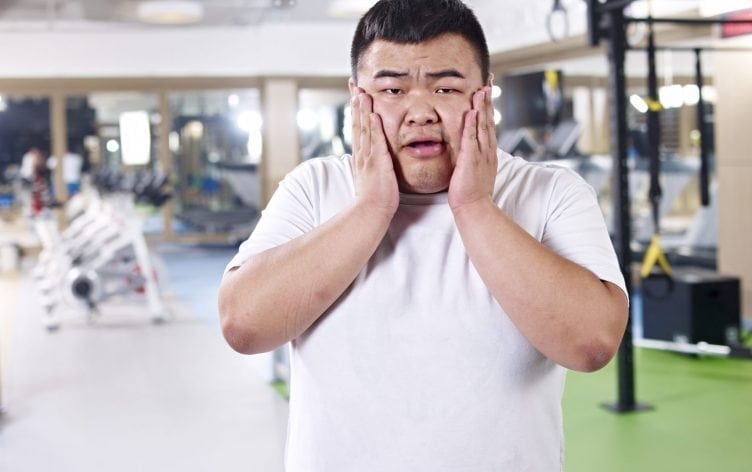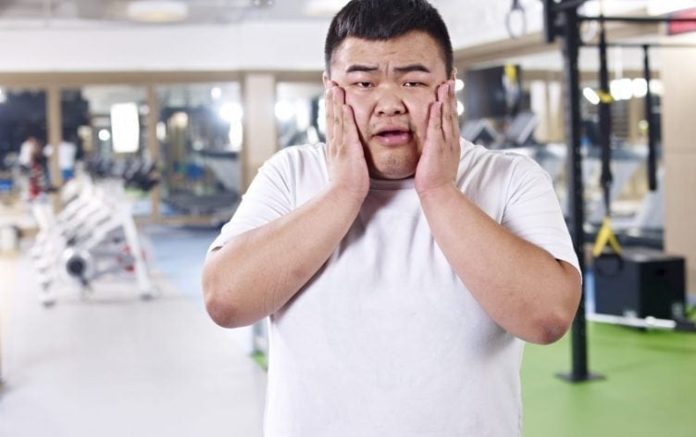
A funny thing happens in studies on the perceived barriers to exercise. If you ask 100,000 people who do not go to the gym, “What’s keeping you from joining the gym?” the most popular answer will be, “I don’t have enough time.”
But, if you ask 100,000 people who do go to the gym what keeps them going back, literally no one says, “I have so much free time!”
It turns out, “I don’t have enough time” is what social scientists call a “socially safe answer.” People feel more comfortable telling scientists they “don’t have enough time” rather than the reason that I hear a lot at parties: “I can’t go to the gym. I’m too fat.”
Since regular exercisers clearly don’t have a 25th hour in the day they’re not telling us about, researchers Hausenblas, Brewer and Van Raalte decided to dig a little deeper into the perceived barriers to exercise, and get past the “socially safe answers.” In their 2004 study, they found that those who lack confidence about the way they look experienced feelings of unease and discouragement regarding exercise participation. They named this phenomenon “Social Physique Anxiety.” This is the feeling that we’ll be judged based on our appearance in an unfamiliar social environment.
Hausenblas, Brewer and Van Raalte’s study documented that many of us are really thinking, “I can’t go to the gym. I’m too fat.” That feeling of judgement is keeping a lot of us from moving more and moving well.
The reality is that most people at the gym are just there to work out. But the perception of judgement still feels very real for a lot of people who are new to fitness. Planet Fitness even addresses this fear in their slogan: “no judgments.”
Many of my early clients came to me specifically because I did not train people in gyms. I trained people in parks and playgrounds, and my clients loved that they could (in the words of one of my clients), “avoid the meat market.”
So how can you avoid the feeling that everyone is staring at you when you’re exercising?
1. Find a better gym. If you are feeling judged at your gym, it might be time to find a new one. There’s even an app to investigate your options. ClassPass allows you to explore the largest network of fitness studios in the United States, and try classes until you find one where you feel comfortable. In addition, my colleague Michele Burmeister founded The Body Positive Fitness Alliance to unite gym owners and potential gym goers who are sick of feeling judged and just want to move and feel better.
2. Skip the gym. Find a class or an activity that is outside of the meat market. Just about every Starbucks has a bulletin board where personal trainers, yogis and bootcamp instructors post about events they are hosting. Lululemon does the same thing, and many bike stores and running stores hosts group rides and runs. Getting outside the four walls of a gym has helped a lot of my own clients feel more confident about the awesome things their bodies can do, and in public no less! I’ve never seen a client so proud as when a stranger stops and asks her about the kettlebell she’s swinging, “How much does that weigh?” Or better yet, the stranger tries to pick up the 32kg kettlebell and can’t even move it.
3. Make your own community. Most studies about the perceived barriers to exercise revealed that people tend to keep exercising because of three things: community, community and community. No matter when people started exercising or for what reasons, statistically it’s community that keeps people showing up. You can recreate this (and avoid the judgment of strangers) by joining together with people you know to form “accountabilibuddy” groups. Friends can walk together, hike together, even hire personal trainers together to form their own bootcamps! If you’re worried about being judged, just remember you can always stack the deck and create your own judgement-free zone in your backyard.
















